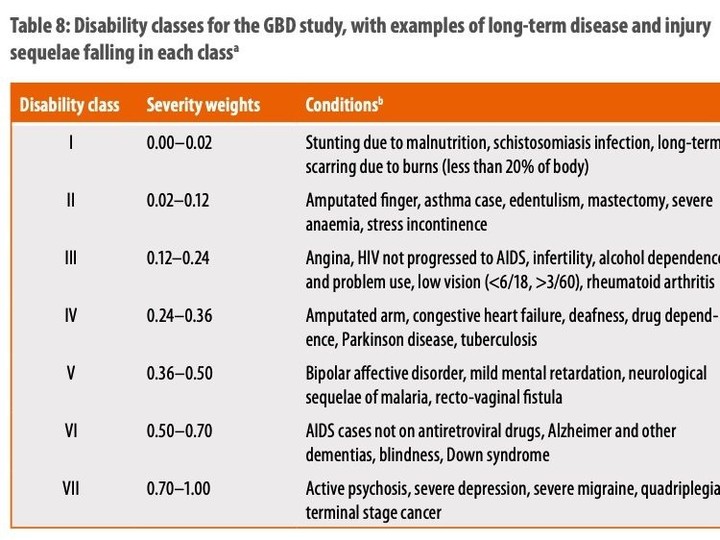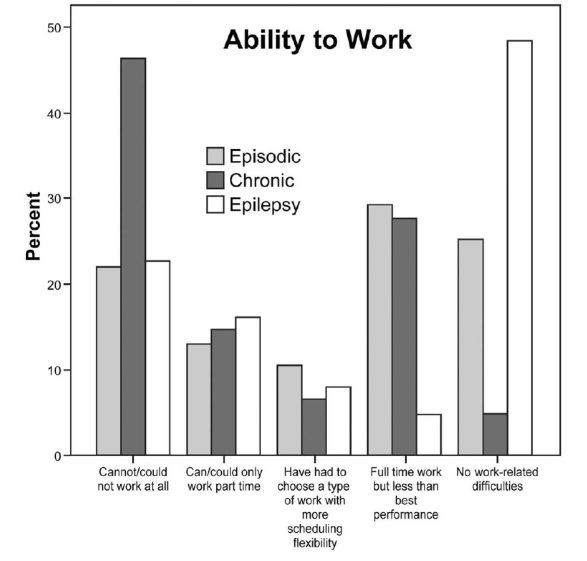what to do when your migraines are disabling
according to the world health organization a severe migraine attack is as disabling as being quadriplegic, psychotic, or in terminal stage of a cancer.

you missed work because you had a migraine. which do you get from your employer and co-workers: support or suspicious looks?
according to the world health organization, a severe migraine attack is as disabling as being quadriplegic, psychotic, or in terminal stage of a cancer. migraine (including medication overuse headache as a complication) is the second cause of years lived with disability in the world, and the first in people under 50. (steiner)
migraine canada wants to raise awareness among employers and insurance companies about how debilitating migraines can be, and create atask force of volunteers to investigate the current state of migraine as a disability in canada. read more about that process here.

a canadian survey on 1202 employees found that for every 100 employees:
- 25 report having migraine
- 12 are diagnosed by a health care provider
- two have migraine more than twice a week

migraine is a leading cause of absenteeism (missed work days)
migraine should be a top priority for employers and disability insurance companies: it is a significant cause of lost productivity in the workplace.
advertisement
among canadian employees, 56 per cent had taken sick days, 23 per cent were on short term disability, and 18 per cent were on long term disability.
migraine canada found that only 20 per cent of people with migraine (all severity) did not miss days of work. 36 per cent missed between 4 and 16 days per year. 25 per cent reported being disabled.

migraine is a leading cause of presenteeism (being at work but not able to function)
a study done in the us on presenteeism showed that migraine was more costly than 20 other conditions including depression, back pain, diabetes and asthma (allen). according to a canadian survey, people with chronic migraine report an average of 40 days of presenteeism per year.
a few statements heard in the clinic include:
i just can’t miss work that often. i have to show up.
my co-workers understand, but i feel really bad that i can’t do my full part.
i do everything to go to work. i usually pay the price at home, having to rest and catch up. there’s just no weekend for me.
i spent all my vacation days on migraine. and my sick days are gone too. what will happen now? should i go on disability?

migraine is stigmatized and not recognized as a medical cause of disability
according to a study on stigma related to migraine and epilepsy, people with chronic migraine were more stigmatized than people with epilepsy and episodic migraine. stigma was directly related to ability to work. (young)
advertisement
the “blue book” of official diseases leading to disability in the us does not include migraine. the consequence: patients disabled by chronic migraine have to use mental health diseases to claim disability recognition. the process to obtain disability recognized is difficult and requires a lot of collaboration from treating physicians.
considering the data provided by the world health organization, is this fair and reasonable? breaking the stigma will start with education and sharing.
what could migraine canada do about this?
action 1: provide information to people living with migraine so they can feel supported and advocate for themselves.
action 2: raise awareness among employers and insurance companies. educate stakeholders about the cause of migraine, the impact on work and quality of life and the appropriate treatments.
action 3: create a migraine and disability task force of volunteers to investigate the current state of migraine as a disability in canada. do you want to volunteer? (click here)
references
https://migrainecanada.org/wp-content/uploads/2019/12/zhang_disability_canada.pdf
steiner https://migrainecanada.org/wp-content/uploads/2019/12/steiner_migraine_gbd_edito_jhp_2018.pdf
 3 minute read
3 minute read





